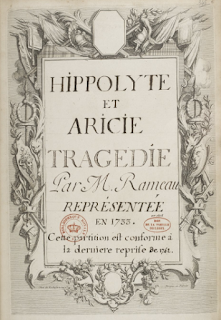Dusapin - Roméo et Juliette
Opéra Comique, Tuesday April 29 2008
"It is quite untrue that British people don't appreciate music. They may not understand it but they absolutely love the noise it makes."
In any case I'm not really an ideas person and the kind of literary exercice de style that the French sometimes go in for does nothing for me. According to the programme notes "The action is cut into two. Before the Revolution and after the Revolution. " The work was, you see, commissioned in bicentenary year, 1989. I haven't worked out where the two Romeos and two Juliettes and their mentor, "Bill", came into this, and haven't yet found a text explaining it to me. "The Revolution is an orchestral piece inserted between the two parts. The first is in the future: what is going to happen? The second is in the present: nothing is happening, then in the past: what has happened? Nothing has happened." And so on. As we all know, it isn't always easy to follow what's being sung in opera; Dusapin's frequently rapid-fire recitatives did nothing to make the disjointed text easier to follow - the bits in English (where strong French accents came into play) in particular. But it seems that it was the composer's and librettist's intent that the texts should sometimes be unintelligible and they, together, decided there would be no supertitles.
I think this was probably my first encounter with Dusapin's music. It is often quite solidly rhythmic and nearly tonal, and overall I preferred the vigorous, pastichy, Schnittke-like parts to the occasional droopy Debussyan ones. Dusapin comes up with some very good effects, exploiting the special personality of certain instruments (e.g. a contra-bass clarinet), the possibilities of glissando and portamento, the eeriness of a very quiet chorus... and his music has a definite form and is clearly going somewhere (not a feeling I had during Saariaho's soporific L'Amour de loin, for example, as you all already know).
The staging was simple (though, as I say, largely incomprehensible). A circular space; a giant weeping willow in the centre with, under it, a round steel platform that rose and fell: the balcony; at the rear, a sort of lecture theatre arrangement for the chorus (often in red Phrygian caps and neckerchiefs, in reference to the revolution; at one point there was also a flag atop the steel contraption, reminiscent of Delacroix' famous Liberty guiding the people, that used to grace the 100-franc note). The costumes, by Christian Lacroix, were especially striking. Romeo 1 and Juliette 1 were in denim-blue and baby-pink outfits very cleverly combining Elizabethan forms (e.g. doublet and cape) and tight jeans and a mini-skirt (May '68). Romeo 2 and Juliette 2 were in red velvet. The red Indians (I'm not making this up you know) had beautiful quasi-native outfits actually calling to mind the Paris Opera's production of Les Indes Galantes. There was excellent coloured lighting, sometimes involving disorienting ultra-violet, and some very clever, neat projection (of incomprehensible key words, many of them mathematical) on to gauze up front.
But it was really the music's evening, and it was well served by the orchestre de Paris and a group of enthusiastic and very well rehearsed young singers. And fortunately, as the Opéra Comique is one of Paris's least comfortable theatres, it lasted only 85 minutes, so there was plenty of time for steak-frites and a bottle of côtes du Rhône afterwards, for those who needed it.



Very well assessed. I guess there was much head shaking in the audience like in the premiere - where I was was. I was thinking of Magritte's "This is not a pipe" painting. Surrealistic the text and the music was fairly elaborated - but is this the future of Opera?
ReplyDeleteWilli G